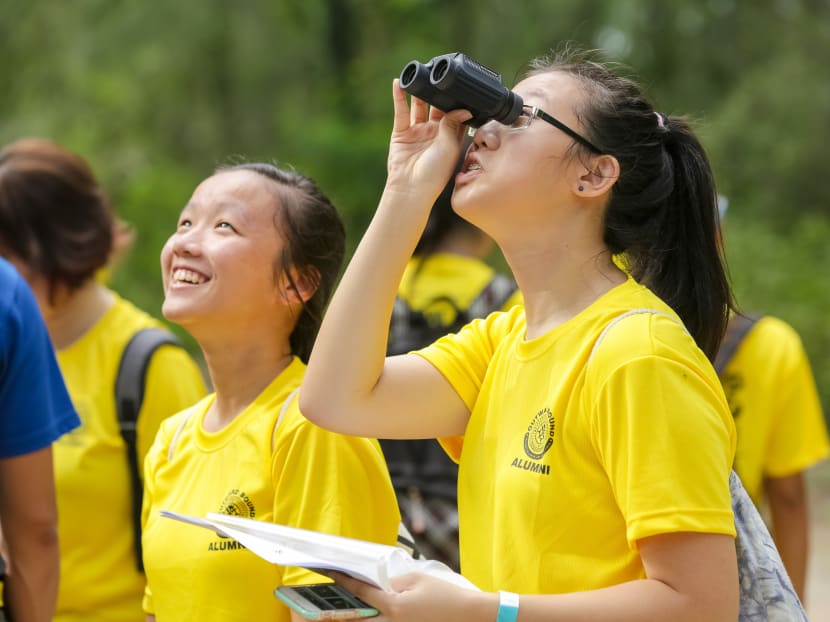Students less self-centred, more disciplined after camp: Organisers
SINGAPORE — An increase in confidence and having a less self-centred outlook are some of the positive changes that camp organisers have seen when students are taken out of their comfort zones and put through a camping experience.

Volunteers conducting a species survey at Coney Island, covering a total distance of more than 4Km as part of the Outward Bound Singapore Project IsLand-A-Hand event. Photo: OBS and National Youth Council
SINGAPORE — An increase in confidence and having a less self-centred outlook are some of the positive changes that camp organisers have seen when students are taken out of their comfort zones and put through a camping experience.
Ms Putri Illiyana Nuratiqah, a trainer with a private outdoor adventure company for five years, recounted how an overseas camp helped turn around an unmotivated student to one who began to excel in sports. “We interacted with the village children and … he was the only one who could (connect) with them … Having to see students not being able to study might have changed his attitude,” she said.
Outdoor educator Melvin Lim, 28, who revamped the National Cadet Corps camp programme in Bowen Secondary School, changed a one-day camp focused on drills to a three-day one where students pitched tents, cooked outdoors and did a 12km route march, among other things. He noticed that the students’ morale and discipline gradually improved, and the “small experiences” helped build their resilience and endurance.
Mr Lim, who is helping the Education Ministry build a team of full-time educators to design and conduct school camps, also recalled how some Farrer Park Primary 5 students were homesick at a recent camp and not comfortable with some activities, such as going into a pond to do conservation work and pluck weeds.
“When they gradually realised that it wasn’t so bad, they began to enjoy themselves,” he said. Having to do things themselves, such as washing their own dishes, also taught them about taking ownership and initiative, he added.
Apart from helping students pick up such life skills, teachers leading outdoor programmes need to take stock of their methods and get more guidance.
Ms Lim Leng Er, who trains teachers from the Education Ministry and outdoor adventure educators, said: “The way you facilitate learning outdoors is very different from the classroom. Teachers tend to take a knowledge-based approach, like getting students to identify the flora and fauna ... But outdoor education is about the students enjoying (and) appreciating nature, not memorising facts about nature.”
She also encourages teachers to get down to the students’ level to share in the experiences, so the students may “be more open to reflect on and pick up new learning points”.









